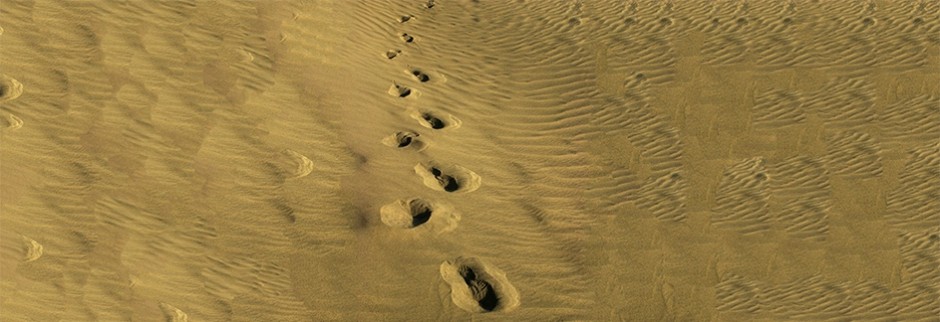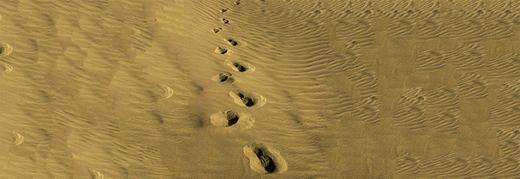The views expressed in our content reflect individual perspectives and do not represent the authoritative views of the Baha'i Faith.

To set the stage: an atheist friend (aka Maynard) posed a series of questions about God that I found interesting enough to warrant answering.
Question #1: Is God a (a) material or (b) non-material entity? (i.e., is God made up of the same kind of stuff like protons, electrons, etc. with properties like mass, charge, spin, etc. that every other thing in the universe is made up of, or is he made of something that is non-material?
From time to time, someone claiming to be God’s spokesperson attempts to explain this to humanity. That seems like a good place to start — with the hypothesis of an original Being, a First Cause. Let’s look at what these proponents for and Prophets of God say about Him:
All the visible universe comes from my invisible Being. All beings have their rest in me, but I have not My rest in them, And in truth they rest not in Me. Consider my sacred mystery: I am the source of all beings, I support them all, but I rest not in them. – Krishna, The Bhagavad Gita 9:4.

As a writer, I “get” what He means. I can be said to be “in” the books I write. I created the characters and laws and plot out of my innermost thoughts and imagination, and the characters continue to live and grow in my mind. But I’m not literally (ahem) in the book. I am not encompassed or defined by the story in the pages, nor do I have to abide by the laws I establish for my fictional universe. Yet, there is a lot of “me” in it. The book reflects my emotions about certain things and people; it reveals my thought processes and, in some instances, will actually show you glimpses of my life.
So, with Krishna, I can say “All my visible literary universe comes from my invisible being. All characters have their rest (and origin) in me, but I don’t rest in them. Really, they don’t rest in me. I am their source, and I support them all by writing about them, but I’m not in them.” In other words, I’m not defined by them or limited by them. I don’t begin and end in them, but rather transcend them. Their reality reflects my reality and my intellect.
Baha’u’llah (Founder of the Baha’i Faith) says that God is an order of being beyond our comprehension, just as we are beyond the comprehension, say, of a fictional character. God is not bound, strictly speaking, by the laws of the physical universe He created, any more than I am bound by the laws I create for a fantasy world in one of my novels.
Baha’u’llah also says something else interesting in this connection that echoes past claimants to the Prophetic Voice:
“He hath known God who hath known himself.”
We human beings are in some essential way, created in God’s image. Krishna says that the atman (soul) is “God’s spirit in man” and that atman makes the human precious in the sight of God and drives us to seek Him. Baha’u’llah writes of the capacity of the human soul to reflect the “names and attributes of God”.

When Baha’u’llah says,
“I loved thy creation, hence I created thee”
I know in some measure what He means. I know the deep unspeakable love that precedes my own acts of creation. I know that the characters I create and the worlds I give them to inhabit are the expression of that love.
This does not mean we are little gods. One of the biggest problems in the world today may be that too many people believe that about themselves already. I take it to mean that if we recognize the uniqueness of our own rational faculty, we’ll have a fraction of a clue about the sort of intelligence human beings reflect in the universe.
So here’s a neat twist: the scriptures of the world’s religions tell us the human spirit is a reflection of the God who is the origin of the Universe. It seems appropriate, therefore, that this spirit predisposes us to ask “Why are we here?” and “How did we get here?” (which are not the same question) and seriously expect to find an answer. We can employ that rational faculty to arrive at the idea that a transcendent, non-physical God logically exists.
How so? If we posit that God is, like us, made up of star stuff (atoms, etc) then we end up with an infinite regression. That is, if God is part of this physical universe and subject to its laws, then the buck doesn’t stop there. We have to ask what caused God. In fact, whatever the Origin of the laws by which this universe works, it cannot, itself, be subject to universal laws. It must be something fundamentally different.
Read the next article in the series: What’s God’s Address?
Read the previous article in the series: Questions from an Atheist: The God Hypothesis

















Comments
Sign in or create an account
Continue with Facebookor